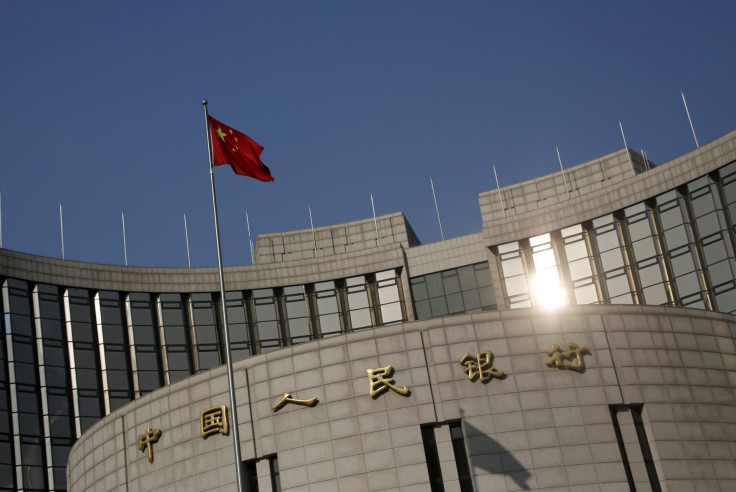China Plans To Loosen Controls On Foreign Fund Outflows: Report

The People’s Bank of China (PBOC) is planning to loosen controls over foreign fund outflows, even as it struggles to halt the flood of capital leaving China’s shores in response to an economic slowdown, Bloomberg reported Wednesday, citing people familiar with the matter. The planned changes, which will apply to the money invested by foreigners in domestic stocks and bonds, are part of a program to open China’s markets and lift the yuan’s profile on the world stage.
As part of the changes, which are yet to be officially announced, the lock-up period for funds under China’s Qualified Foreign Institutional Investor (QFII) program will be removed, allowing international investors to withdraw their money on a daily basis. Under current rules, based on the quota, these funds are subject to lock-ups of either a week or a month.
The QFII program, launched by the Chinese government in 2002, allows foreign investors to buy or sell shares on stock exchanges in Shanghai and Shenzhen. However, foreign access to these shares remains limited by specified quotas that determine the amount of money that the licensed foreign investors are permitted to invest in China’s capital markets.
The planned relaxation of rules comes at a time when China is battling to reverse currency outflows that have undermined the yuan and eaten into foreign exchange reserves. According to recent estimates, China’s capital outflows in 2015 stood at a staggering $1 trillion, while its forex reserves, which the central bank has been using to shore up the beleaguered yuan, dropped $513 billion to $3.33 trillion — marking the first annual drop since 1992.
As a result, while the PBOC readies plans to loosen controls over the QFII funds, it is also believed to be readying measures to “aggressively” reinsert capital controls in other areas, the Wall Street Journal reported last week, citing people with direct knowledge of the matter. The measures, which have not been publicly disclosed, involve curbing the ability of foreign companies in China to repatriate earnings and banning yuan-based funds from overseas investments, the Journal reported.
“They’re sparing no effort to prevent capital outflows,” a senior Chinese banking executive close to the central bank told the Journal. “All the measures are the most aggressive I’ve seen in recent history.”
© Copyright IBTimes 2024. All rights reserved.






















